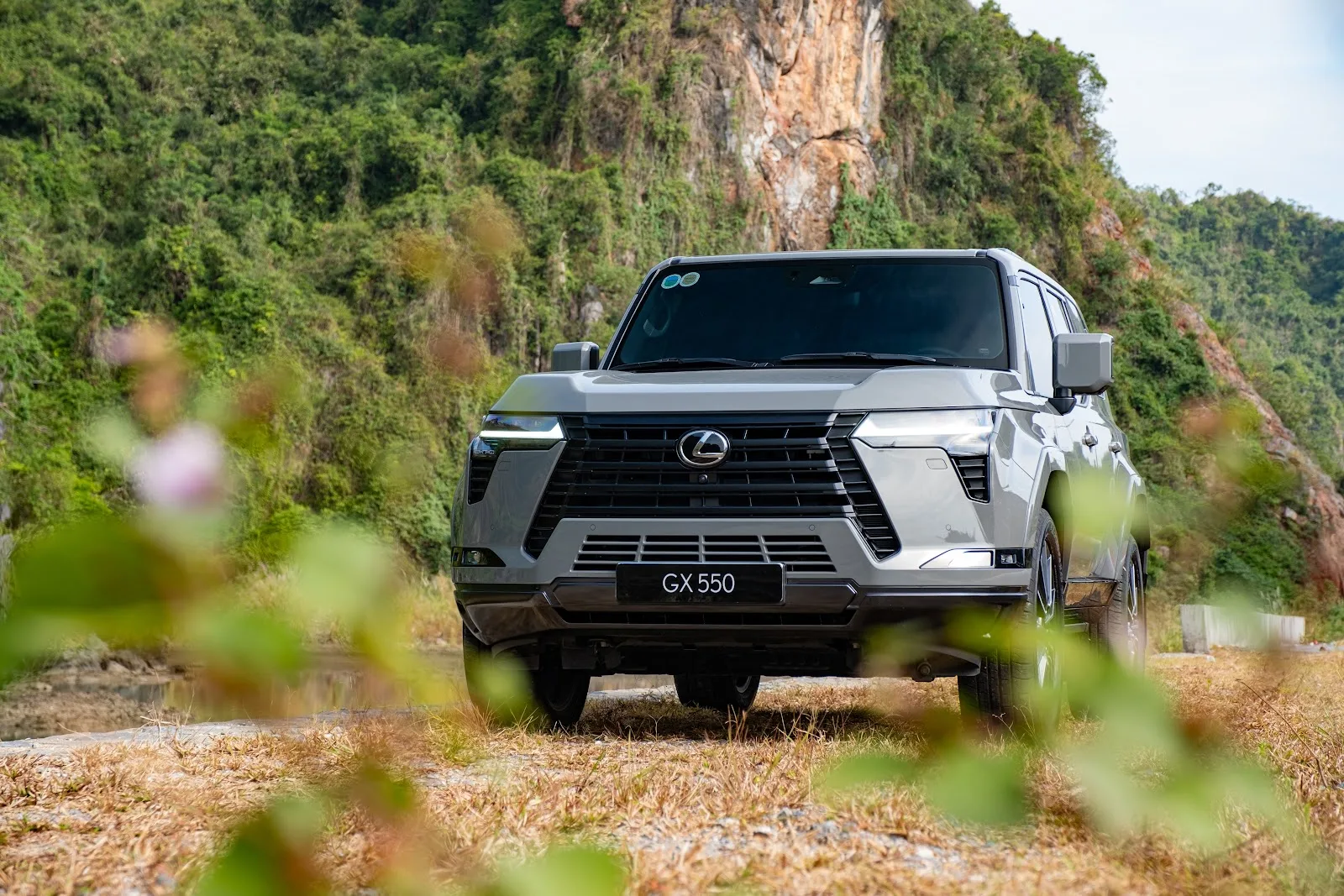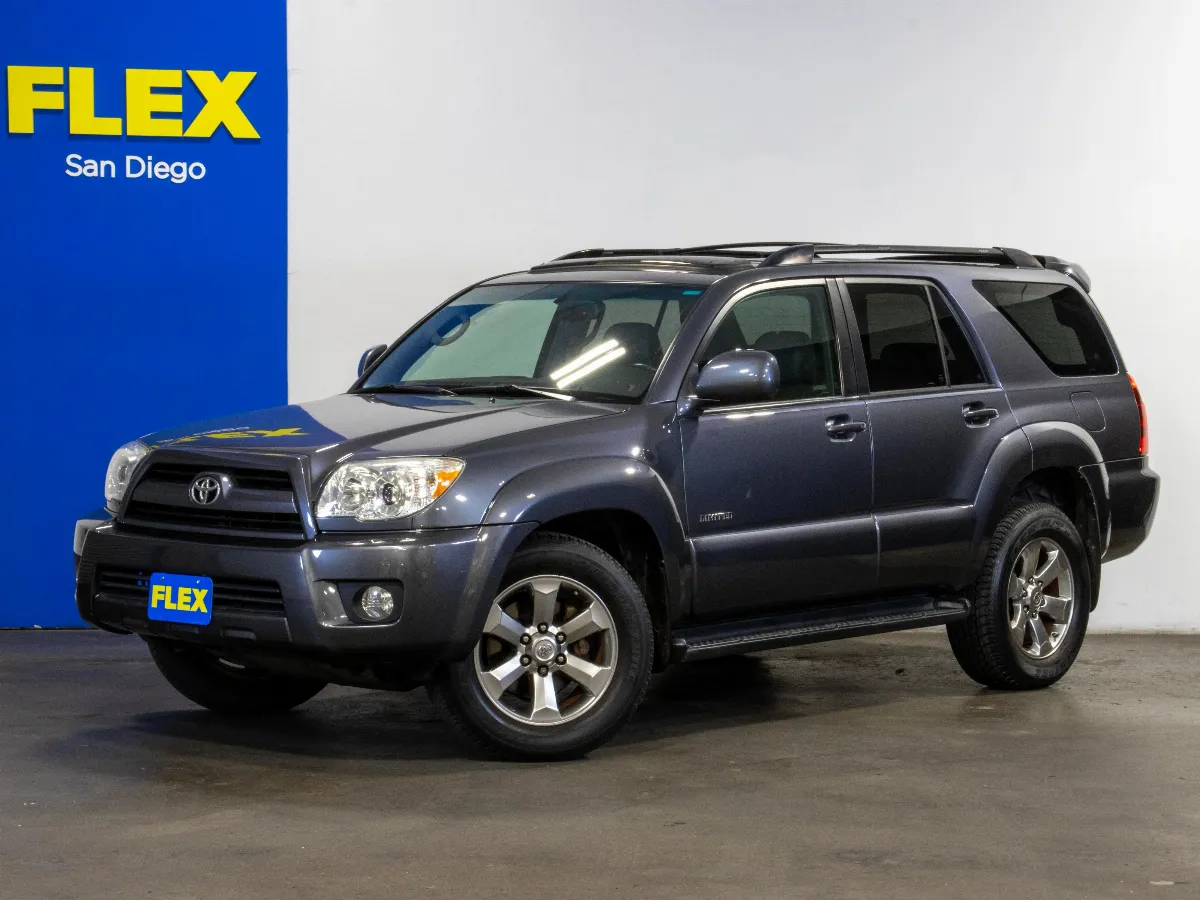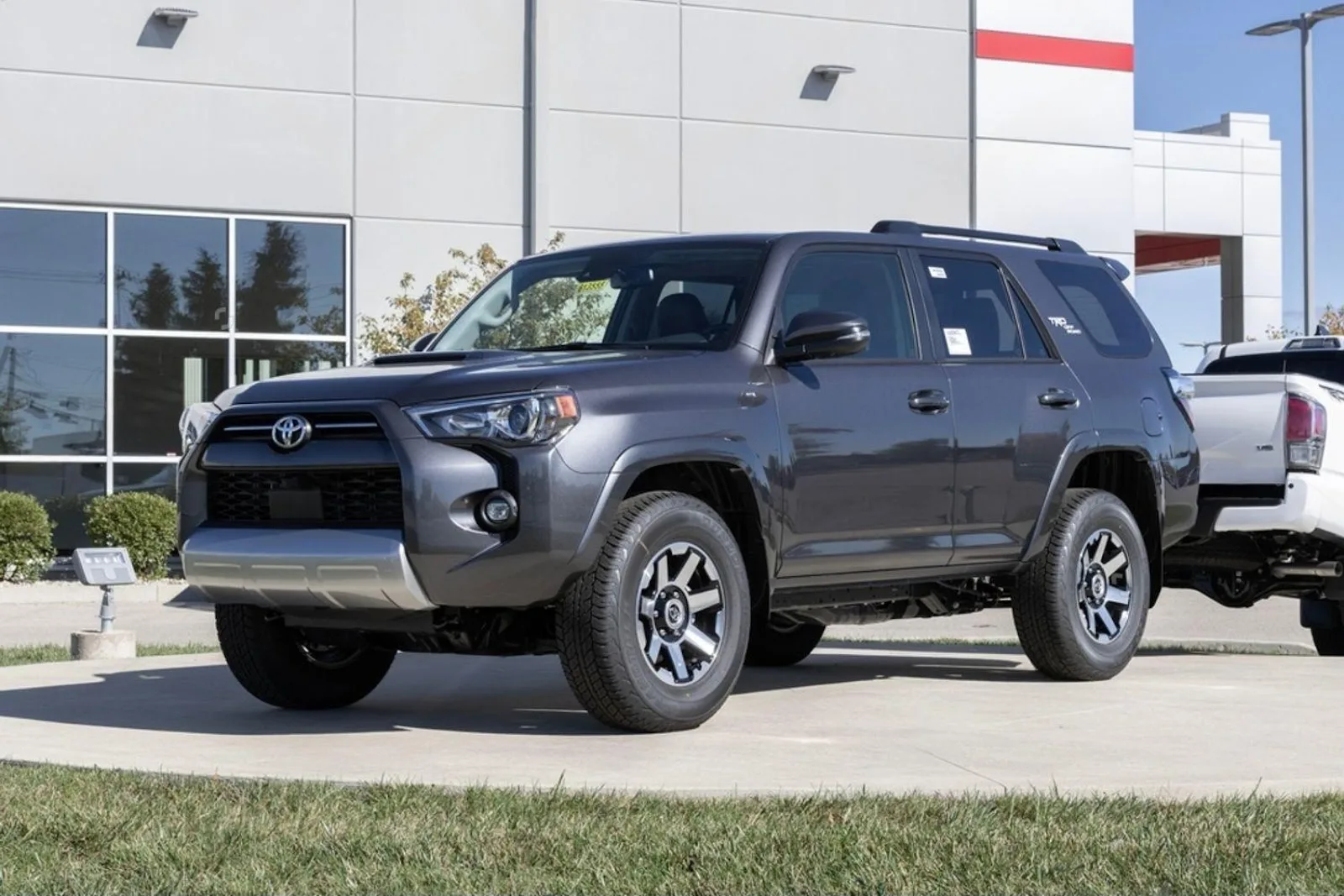Sure, the Lexus GX 550 with its competitive fuel economy for its size and impressive towing capacity is the new king in the full-time 4WD SUVs. However, Toyota has also set some nice competition. For instance, the all-new 4Runner is better than ever compared to the old models, offering a refreshing design and an improved powertrain.
So how do both these SUVs compete with each other? Well, that’s what I did last week — took both of these SUVs, test drove them to their limits, and compiled this comparison. I’ll walk you through different aspects of both the Lexus GX 550 and Toyota 4Runner. So, let’s get into it!
Table of Contents
- Lexus GX 550 Vs Toyota 4Runner – Your 2025 Comparison!
- Lexus GX 550 Vs Toyota 4Runner – Specs
- Lexus GX 550 Vs Toyota 4Runner – Performance
- Lexus GX 550 Vs Toyota 4Runner – Interior
- Lexus GX 550 Vs Toyota 4Runner — Cargo Space
- Lexus GX 550 Vs Toyota 4Runner — Towing Capacity
- Lexus GX 550 Vs Toyota 4Runner — Pricing
- Lexus GX 550 Vs Toyota 4Runner – Final Thoughts!
Lexus GX 550 Vs Toyota 4Runner – Specs
Let’s first run down all the essential specifications of both these SUVs. So, here’s the detailed list.
Key Specs
| Key Aspect | Lexus GX 550 | Toyota 4Runner |
|---|---|---|
| Powertrain | 3.4 L twin-turbo V6, 349 hp / 479 lb-ft | i-FORCE 2.4L turbo 4-cyl: 278 hp & 317 lb-ft; i-FORCE MAX hybrid: 326 hp / 465 lb-ft |
| Transmission | 10-speed automatic with full-time 4WD | 8-speed automatic, RWD standard / 4WD optional |
| Starting MSRP | $66,185 | $41,270 |
| Trims | Premium, Overtrail, Overtrail+, Luxury, Luxury+ | SR5, TRD Sport, TRD Off-Road, Limited, Hybrid variants, TRD Pro, Trailhunter, Platinum |
| Towing Capacity | Up to 9,063 lbs | Up to 6,000 lbs (most trims) |
| Payload | 1,490 lbs (varies by trim) | 1,550 lbs (varies by trim) |
| Gas Mileage | 15 city / 21 hwy, ~17 MPG combined | Gas: ~20 city / 26 hwy (RWD), ~19/25 (4WD); Hybrid: ~23/24 |
| Fuel Tank Size | 21 gal | 19 gal |
| Cargo Space | 10.3 cu-ft (all seats up) → 76.9 cu-ft (folded) | 48.4 cu-ft (seats up) → 90.2 cu ft (folded) |
| Off-Road Add-Ons | Multi-Terrain Select, Crawl Control, E-KDSS, locking center diff, skid plates, 33-inch tires on Overtrail | Optional locking rear diff, disconnecting stabilizer bars, hybrid dampers, 4WD w/ low range |
| Safety | Lexus Safety System+ 3.0, adaptive cruise, blind-spot, lane assist, 360-view available | Toyota Safety Sense 3.0, standard driver assists |
| Warranty | 4 yr / 50,000 mi basic | Toyota typically 3 yr/36k & 5 yr/60k for powertrain) |
| Extras | 14- inch touchscreen, satellite nav, Mark Levinson sound, massaging seats, onboard air compressor (Overtrail), 12.3″ digital dash | 8–14-inch touchscreen, optional hybrid features, new platform, off-road oriented trims like Trailhunter |

Lexus GX 550 Vs Toyota 4Runner – Performance
When comparing two hot SUVs, the 1st thing that comes to our mind is their performance. Well, that’s quite obvious as these 4×4 beasts are meant to be driven on a variety of terrains. Now, let me clear a few things, 1st, I picked up the Lexus GX 550 Overtrail (as it’s more off-road centric) and 4Runner TRD pro trim to bring a fair comparison.
1st, I drove both SUVs on a plain road. They drove well. What really surprised me was the fact that the 4Runner coped really well with GX’s V6 Powertrain. Sure, the V6 thrill was there, but the hybrid powertrain of the 4Runner aids it a lot when you drag it.
Next, I took the 4Runner on an off-road track. Thanks to the removable front stabilizer bars, you get that additional confidence while driving the 4Runner. It went smoothly for the most part. Here, I should appreciate the FOX shocks’ response. They absorbed even the tiniest bumps just to make sure your ride remains smooth.
Talking about the GX on off-road terrain, we will know how well it performs. Sure, it doesn’t have those TRD Pro-specific FOX shocks, but its E-KDSS (Kinetic Dynamic Suspension System) is a true lifesaver on challenging terrains.
GX 550 Overtrail and Overtrail+ both offer an inch of extra ground clearance. Combined with E-KDSS and multi-terrain select mode, the GX 550 performs excellently on tough terrains.
To sum things up, both are solid 4×4 SUVs. However, I feel like GX 550 has its advantages here. Thanks to its powerful V6 engine, great ground clearance, and E-KDSS (Kinetic Dynamic Suspension System), it’s always ready to conquer any type of terrain.

Lexus GX 550 Vs Toyota 4Runner – Interior
Talking about the interior, things are pretty much the same as our Lexus GX 550 VS Land Cruiser comparison. With the 4Runner, we get that Toyota’s rugged touch. The overall interior has a more rugged feel to it. I really liked the extra physical buttons (especially for the climate control). Sure, it’s modern to an extent, too, but not as luxurious as GX.
When i sat in GX 550, I was pleasantly surprised by its luxurious feel. From the dash layout to the use of soft-touch materials everywhere, the SUV looks a lot modern from the inside. There are very few physical button controls; you get a 14-inch infotainment screen, which lets you control essential functions on top of multimedia. The steering design, instrument cluster, and even the driver’s side controls are all well laid out.
In simple words, GX 550 wins the battle here for me as it packs in more futuristic interior. The Toyota 4Runner interior is respectable but lacks that modern touch.

Lexus GX 550 Vs Toyota 4Runner — Cargo Space
Cargo is where real life meets the SUV. Groceries, gear, or a weekend of camping. I tested both in real conditions and checked the official specs, and here’s the short of it: the 4Runner is the practical hauler, while the GX 550 balances luxury with usable space.
Toyota lists the 2025 4Runner with about 48.4 cu ft behind the second row and a whopping 90.2 cu ft with seats folded — that’s massive for throwing in bikes, coolers, and bulky gear. The i-FORCE MAX hybrid versions trade a little space (around 82.6 cu ft) but still beat many rivals. In day-to-day life, the 4Runner’s boxy cargo area is easy to load and practical.
The Lexus GX 550 is more refined inside. Official Lexus specs show roughly 10.3 cu ft with all seats up (third row in use) and about 76.9–77 cu ft with the second/third rows folded, depending on the config.
That’s less than the 4Runner max, but remember the GX’s cabin is dressed up. Soft-touch materials, more sculpted storage, and clever cubbies. In my week with the GX, I found it handled weekend luggage and camera gear comfortably, but it’s not the king of raw volume.
So which one wins? If you need pure cargo cubic feet and an easy, flat load floor, the 4Runner takes it. If you want a more refined interior with decent, usable cargo room, and you’re willing to trade a little volume for luxury, the GX 550 is the smarter, more comfortable choice.
Lexus GX 550 Vs Toyota 4Runner — Towing Capacity
Towing is one area where numbers translate directly to utility. I pulled the official towing figures and also tried trailer hookups during my test runs, here’s what stood out.
The Lexus GX 550 is built like a truck under the skin, and the towing numbers reflect that. Trim-by-trim Lexus lists capacities in the roughly 9,000-lb ballpark for the Overtrail/Premium trims (for example, some trims can tow 9,063–9,096 lbs depending on configuration). That’s class-leading for a vehicle that doesn’t look like a pickup.
Practically speaking, that means you can tow large boats, heavy toy haulers, or a well-loaded travel trailer without sweating the limits. The best part, GX’s strong low-end torque (479 lb-ft) makes the work feel easy. During my towing run the GX stayed composed, visibly comfortable, and the tranny and cooling packages felt up to the task.
The Toyota 4Runner moved up significantly with the 2025 redesign. Toyota quotes up to 6,000 lbs for properly equipped models — notably the TRD Pro/Trailhunter/i-FORCE MAX builds — while many other trims are rated around 5,000 lbs.
That’s a solid number for campers, boats, and lighter trailers, and for most buyers it’s more than enough. The 4Runner’s hybrid i-FORCE MAX boosts torque in the trims that get the higher rating, which helps when towing on steep grades.

Lexus GX 550 Vs Toyota 4Runner – Final Thoughts!
After putting both these SUVs through their paces, I can confidently say each one has its own strengths. The Toyota 4Runner shines with its practicality, massive cargo capacity, and more affordable pricing. It’s rugged, dependable, and built for adventure — perfect for buyers who want no-nonsense off-road ability without spending luxury money.
On the other hand, the Lexus GX 550 is more than just capable; it’s refined. With stronger towing numbers, a smoother V6 powertrain, and a plush interior, it balances luxury with off-road grit. In daily use, I found it more comfortable and versatile, especially if you’re hauling gear or traveling long distances.
If I had to pick one, I’d lean toward the GX 550. It feels like the more balanced package overall — premium, capable, and future-ready. The 4Runner is impressive, but the GX edges it out as the SUV I’d want to live with.






